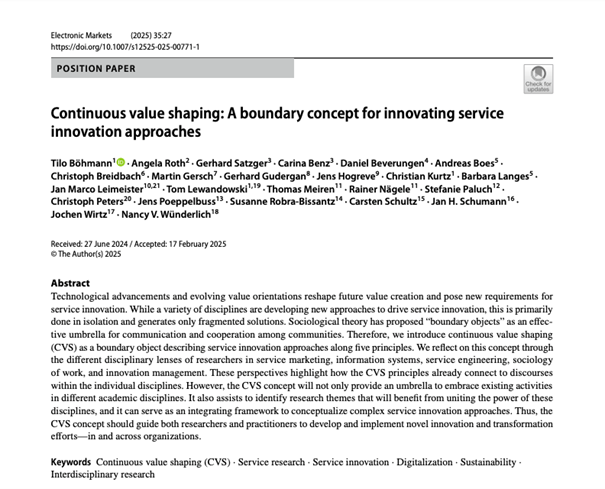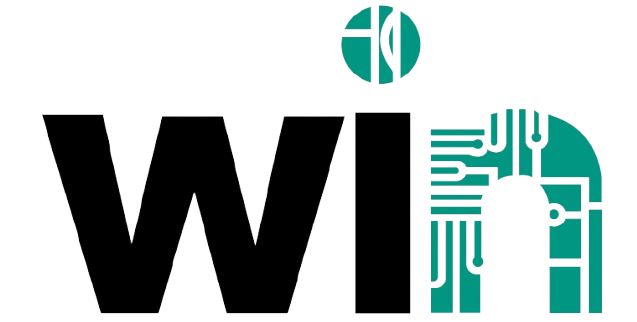
New Positioning Paper: “Continuous Value Shaping – A Framework for Interdisciplinary Service Innovation”
- Date: 11.04.2023
The positioning paper “Continuous Value Shaping – A Framework for Interdisciplinary Service Innovation” has been published in Vol. 35 of Electronic Markets.
In today’s dynamic environment—shaped by rapid technological progress and evolving societal expectations—service innovation is becoming increasingly complex. Traditional, discipline-specific approaches often fall short in addressing the multifaceted challenges of future-oriented value creation.
In response, the authors introduce the concept of Continuous Value Shaping (CVS) — a boundary object designed to bridge disciplinary perspectives and support holistic, collaborative approaches to service innovation. Drawing on expertise from service marketing, information systems, service engineering, sociology of work, and innovation management, the paper outlines five key principles of CVS aimed at fostering interdisciplinary exchange and action.
The development of CVS emerged from a community effort, bringing together researchers from multiple fields in an open, collaborative process facilitated by the Deutsches Forum Dienstleistungsforschung (DF²). This dialogue enabled a shared understanding of common challenges and potential pathways for integrating diverse academic and practical perspectives.
The concept of CVS is intended to:
Unify diverse academic efforts by offering a shared language for ongoing initiatives,
Identify future research directions that benefit from cross-disciplinary collaboration, and
Provide an integrative framework for understanding and advancing complex service innovation strategies.
Beyond academic relevance, CVS is also designed to support practitioners by offering guidance for developing and implementing innovation strategies that align with the dual goals of digital transformation and sustainable development.
The full paper is available open access via: https://link.springer.com/article/10.1007/s12525-025-00771-1
Authors: Tilo Böhmann, Angela Roth, Gerhard Satzger, Carina Benz, Daniel Beverungen, Andreas Boes, Christoph Breidbach, Martin Gersch, Gerhard Gudergan, Jens Hogreve, Christian Kurtz, Barbara Langes, Jan Marco Leimeister, Tom Lewandowski, Thomas Meiren, Rainer Nägele, Stefanie Paluch, Christoph Peters, Jens Poeppelbuss, Susanne Robra-Bissantz, Carsten Schultz, Jan H. Schumann, Jochen Wirtz & Nancy V. Wünderlich

